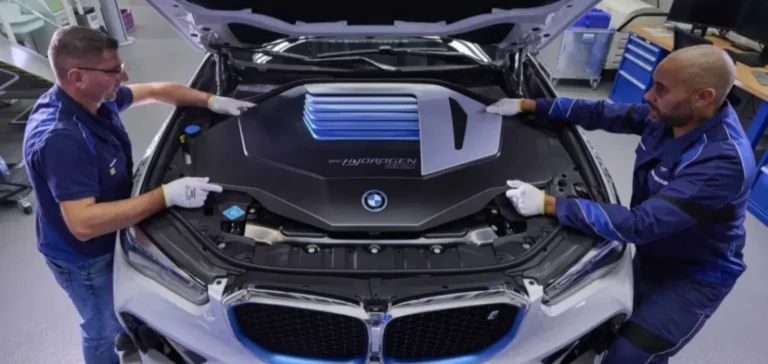German Chancellor Friedrich Merz has called for adjustments to the European regulation banning the sale of new combustion vehicles from 2035, a deadline he considers hardly achievable under current conditions. He made this demand while inaugurating the International Motor Show in Munich, stressing the need for an “intelligent, reliable and flexible” approach to the energy transition in the automotive sector.
Major German manufacturers, including Bayerische Motoren Werke (BMW), Mercedes-Benz Group and Volkswagen AG, have echoed similar concerns. Oliver Blume, Chairman of the Board of Management of Volkswagen AG, said that the 2035 target was “not achievable” without annual adjustments, calling for the introduction of “review clauses” to assess the sector’s progress. Stellantis NV, parent company of Peugeot and Fiat, also expressed doubts about the feasibility of the timeline set by the European Commission.
German groups fear loss of competitiveness
The growing competition from Chinese manufacturers, strongly represented at the Munich show, fuels concerns. Companies such as BYD Co. Ltd. showcased affordable models already available on the European market, such as the Dolphin Surf, sold at around €20,000 ($21,440), with production planned in Hungary by the end of 2025 to bypass European customs duties. This commercial offensive increases pressure on European manufacturers amid technological change.
In response, Volkswagen AG plans to launch in 2026 a new entry-level vehicle range priced under €25,000 ($26,800), through its Volkswagen, Cupra and Skoda brands, targeting 20% of the European small electric car market. The German company also announced a reduction of 35,000 jobs by 2030, as part of an accelerated restructuring process.
A strategic sector undergoing rapid transformation
The transition to electric mobility, although underway, remains slow. At the current pace, sales of electric vehicles do not, according to industry leaders, guarantee a full shift by 2035. Industry actors demand open technological decisions, insisting on profitability and neutrality regarding solutions, whether battery-based or synthetic fuels.
Germany’s automotive industry lost more than 50,000 jobs in one year, according to data from Ernst & Young, out of a total of around 800,000 positions. This decline comes amid social tensions for many companies, including Porsche AG, Audi AG and numerous subcontractors, facing layoffs and production shutdowns across Germany.
Planned consultation to revive the industry
The Chancellery plans a national consultation bringing together regions, unions and manufacturers to define the conditions for maintaining Germany’s leadership in the global automotive sector. The government aims to avoid industrial marginalisation compared to countries like China, now better positioned in strategic segments of low-cost electric vehicles.
The absence of Tesla Inc. from the Munich show, after having attended in 2023, illustrates shifting balances in the European market. The American manufacturer saw its sales drop by 43% in the first half of the year, weakened by political controversies surrounding its CEO Elon Musk.






















